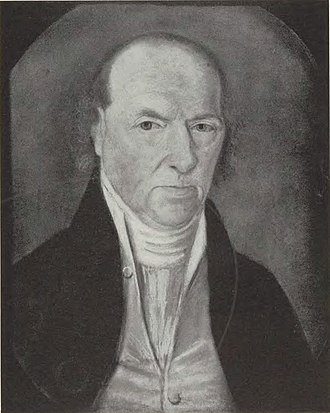Early Life and Background
John Blair Jr. was born in 1732 in Williamsburg, Virginia, into one of the colony’s most distinguished families. He graduated from the College of William & Mary and studied law at the Middle Temple in London. Upon returning to Virginia, Blair embarked on a career as a lawyer, judge, and public servant, earning a reputation for legal scholarship, personal integrity, and moderation.
Blair served in the House of Burgesses and later in the Virginia Convention, where he supported the cause of independence from Britain. He also helped draft Virginia’s first state constitution in 1776 and served on the General Court of Virginia, gaining substantial experience in constitutional and appellate law. In 1780, he was appointed to the High Court of Chancery, Virginia’s highest appellate court at the time.
Constitutional Convention
Blair was selected by Virginia to attend the Constitutional Convention of 1787 and was one of the few delegates with prior judicial experience. Though not one of the more vocal delegates, he was a steady and thoughtful presence, supporting the Virginia Plan and advocating for the creation of a strong federal judiciary.
He aligned with James Madison and George Washington in favor of a robust national government that could unify the states and preserve order. While he rarely spoke during debates, Blair contributed meaningfully to discussions about the judiciary and the structure of the new government. He voted in favor of the final Constitution and signed it on September 17, 1787.
Later Public Service and Legacy
After the Constitution was ratified, President George Washington appointed Blair in 1789 as one of the original Associate Justices of the United States Supreme Court. He served on the Court until his resignation in 1795. Although few written opinions from the early Court have survived, Blair participated in several important cases that laid the groundwork for the authority of the federal judiciary under the new Constitution.
Blair’s judicial philosophy emphasized constitutional order, the balance of powers among the branches of government, and the supremacy of federal law. Highly respected for his intellect and character, Blair remained a modest and unassuming figure on the national stage. He died in Williamsburg in 1800.






